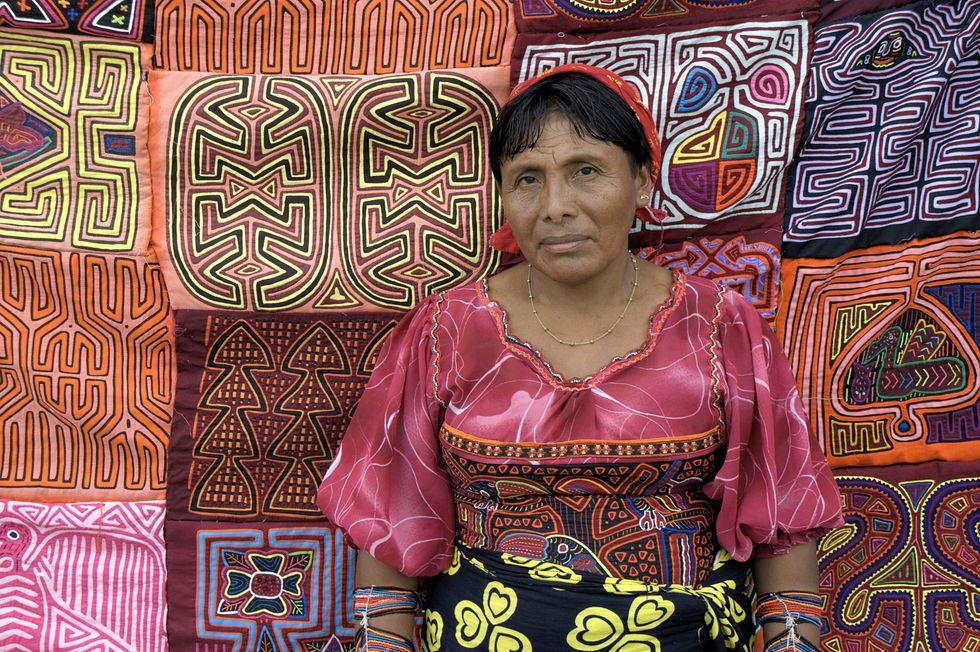At least in the eyes of Latin America, Panama is considered to be a wealthy country much like Dubai or Singapore. While it is true to some extent, this country has traded in its culture for globalization and international trade, treating its own citizens as if they were foreigners in their own country.
There are many examples I could mention, but what has personally affected me is the lack of opportunity or appreciation for young artists in the country. Especially with the "Juega Vivo" attitude within Panama, all aspects of society are rotten to its core and one must be self-motivated to pursue higher education.
In my personal opinion, this has left Panama as being a slum for art, or creativity in general, and is perhaps the worst in the Americas. Monetary gain is rapidly increasing, but the local populace is still stuck in an anti-intellectual culture.
Having studied at art schools in the United States, Panama, and Colombia, it is definitely noticeable how much each society has invested in its citizens' education. Colombia by no means is a developed or rich country, yet they somehow find a way to turn their paltry tax revenues to produce some of the best art programs I've seen in Latin America. The United States has its problems, yet there are still grants, loans, and a healthy economy for people to pay their way into a nice art school.
Panama, on the other hand, is a nation full of false promises. Thanks to the canal money offering stimulus to public Universities, education is in shambles and resembles poorer, less-developed nations. For example, the local fashion design program is often canceled for the semester due to a lack of teachers or funding, which is weird since millions from the canal money are supposed to be injected right into it.
This leaves students in the hands of private universities to study art, which can cost upwards of $400 a month. It is mostly upper-class families that utilize these as making minimum wage would barely be enough to cover tuition, and there isn't the same access to borrowing money like there is in the United States.
While the economic and social freedom in Panama is at its peak, the local population has no appreciation for local art or culture. The idea of fulfillment is watching American movies, eating American junk food and wasting the last bit of one's paycheck to make the payment on their overpriced car.
The local corrupt government has also lacked the creation of programs to preserve local art or cultural events. Most of this is supported by the private sector or one's own money, which there is a lack of outside the highly concentrated upper class. Just taking a peek at neighboring Colombia, a country with plenty of corruption, there are art programs galore in most cities.
If you want to see a musical, play, art gallery or a live performance of classical music, you will have to take a flight to Colombia or Costa Rica. Even in impoverished Nicaragua, the art culture is thriving quite a bit more than Panama.
Panama is notorious to international economists and investors for being the country with the hottest growth in Latin America. Per capita, we've even surpassed economies like Chile, Argentina, and neighboring Costa Rica. The fact that we use the dollar also provides perceived stability that only a handful of countries can match.
Unfortunately, the scope of business is rather narrow, leaving most people with art degrees working in an unfulfilled office job. Finance, tourism or anything pegged to the government is the only thing the economy relies on, especially considering the government has been intentionally subverting the private sector to bring in more foreign goods and services.
One fortunate aspect is the freedom to create a business, especially if it's an internet-based startup in Cuidad del Saber. This has attracted foreign investment as Panama has favoring laws and tax benefits that few countries can match. Although, such tax benefits are lessened for local Panamanians in favor of foreigners with enormous capital.
The latest election has brought in a new president, in which people hope that it will reduce corruption and allow more money to be invested in public services. While I would love to be hopeful, more change is needed in Panama besides a presidential candidate or a few new parliament members. Significantly more money should be invested in primary schools and higher education, hopefully promoting educational and intellectual aspirations within the younger generation so that Panama has a future outside of relying on its canal.












